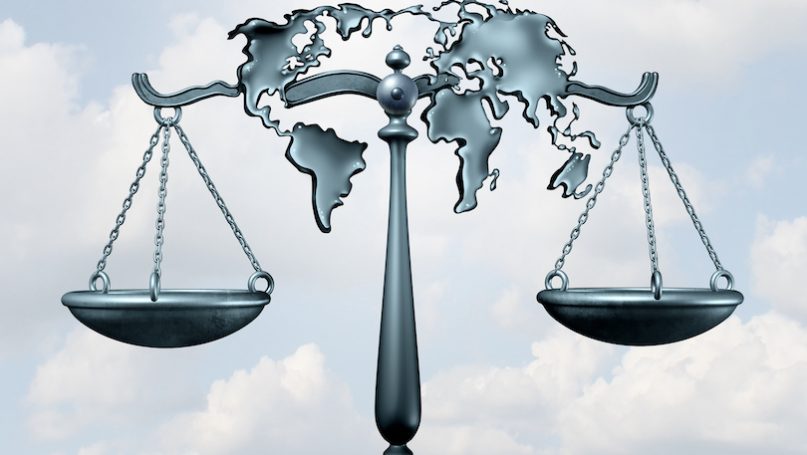
This feature is part of the online resources to accompany the textbook Foundations of International Relations.
International law is a system of norms, a social practice and a professional culture that remains open to change and contestation. It comprises learned techniques, traditions, institutions and ideologies that evolve. These add up to a unique form of law – one that is very different to the laws we each experience domestically. There are numerous state and non-state actors that engage in the regulation and administration of nearly all aspects of international life. Yet, questions often persist as to what kind of law international law is. This is especially pertinent as we have already established that, technically, there is no higher power above the state due to the principle of sovereignty. This itself raises questions of not just how international law exerts influence, but why states comply with it and how effective it is. Appreciating the dynamics that these questions cause forms an important part of understanding how this central normative structure within our global system works and how International Relations understands it.
Many observers regard international law as caught in an enigma: how can international legal norms be effective if their existence depends on the will of states, the very subjects international law shall govern? Many answers have been given to this question, including that other examples of rules exist, such as traditions, that instil compliance (rule following) without any strict enforcement. Another argument is that enforcement can take forms other than coercion. Most frequently, however, observers point to international practice which confirms that states constantly produce, engage with and recognise international rules. Henkin famously stated that ‘almost all nations observe almost all principles of international law and almost all of their obligations almost all of the time’.
Text adapted from Traisbach, Knut. ‘International Law’. In, McGlinchey, Stephen. 2022. Foundations of International Relations. London: Bloomsbury.
Below is a collection of multimedia and textual resources that help unpack, and explain, the importance of international law.
General overviews
Academic debates about International Law
Additional resources
International Law – a MOOC with many video modules
What is International Law? – Article
War Crimes – United Nations website
Audiovisual Library of International Law – United Nations website
Public International Law Discussion Group – Podcast
Deterring Wartime Atrocities and the Yugoslav Tribunal – Podcast